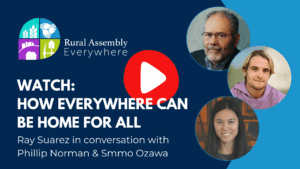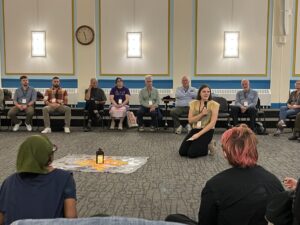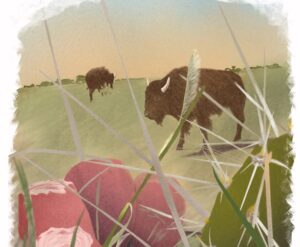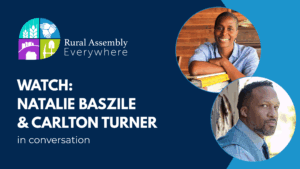Rural Young People Need to File Their Taxes
Yup, they lowered the age limit. The expanded Earned Income Tax Credit expansion means tax filers 18-25 years old may be eligible for up to $1,500. Learn more from the Rural Youth Catalyst Project.

Most of us are aware of, or have received, two important, long standing tax credits: Earned Income Tax Credit (EITC) and the Child Tax Credit (CTC). Unfortunately, young adults under the age of 25 were not eligible for these gains.
Each of these tax credits received significant and critical provisions earlier this year with the passage of the American Rescue Plan Act. Both of these provisions provide sizable support to individuals and families especially to those that have been hit the hardest economically by the pandemic. Rural young people ages 18-25 may be eligible for up to $1500 if they file their tax returns.
However, these vital expansions were only approved for one year so it is important that young people file their tax returns now. We all need to keep pressure on Congress to keep these expansions permanent in the Build Back Better Bill.
Wait, What Expansions Are You Talking About?
The EITC is a powerful tax credit but it largely excluded workers not raising children, providing only a tiny credit to a very small number of these workers. More importantly, young people were excluded altogether. The American Rescue Plan Act temporarily fixed these flaws at a critical time by:
- Lowering the eligibility age from 25 to 19 years old. And to 18 for homeless young people or for young adults transitioning out of foster care.
- Raising the maximum credit from $540 to $1,500.
- Raising the income cap to qualify from about $16,000 to at least $21,000.
Why Is This Important to Rural and Native Young People?
Young people have carried the economic brunt of the pandemic with over half of unemployed young people unable to work due to COVID-19.
Additionally, when employment was available, young people filled many of the essential jobs (cashiers, food prep/service, eldercare), serving on the front lines, at high risk of contracting COVID, while receiving the lowest wages. Prior to the epidemic, the childhood poverty rates and the numbers of rural and Native opportunity youth were significantly higher than their urban peers. Now our young people are arriving into early adulthood facing even greater barriers and limited career pathway opportunities.
An estimated nearly 5 million young people will benefit from the expansion of EITC: that extra $1500 matters.
For rural and Native young people, ETIC provides an equitable pipeline to economic security. It can help young adults gain safe and stable housing, offset transportation costs, buy food, or pay for educational expenses.
What You Can Do:
- Make an extra push to ensure that young people file their taxes. We’ve created a flier template to share the news and add your own details. Post reminders in your newsletters and on social media. (Download the flier from Google Drive.)
- Host free tax filing sessions and build them into your young people’s program schedule.
- You can invite a local VITA partner to lead the session, find your local partners using this link https://www.taxoutreach.org/tax-filing/free-tax-filing-vita/ If none are available, use the online free tax https://www.getyourrefund.org/en
- Have young people work together in small groups to file their taxes
- Use the free online EITC tax credit calculator to help young people see the amount they may receive https://www.taxoutreach.org/help/
- Lead a discussion about what taxes are, why they matter to communities, any why it’s important to file our taxes
- If you, or your organization, do not work directly with young people, you can still share this information in your upcoming newsletters and pass it along to those in your local networks (ex: youth programs, CTE and workforce training programs, community colleges, shelters, etc.)
The Rural Youth Catalyst Project is an independent working group aligned with the Rural Assembly. Working nationally, the Rural Youth Catalyst Project aims to strengthen and create opportunities that allow rural and Native youth to realize their hopes and dreams while remaining in or returning to their communities.
Collaborate with us: For additional information about the Rural Youth Catalyst Project or to collaborate with us please contact Kim Phinney and Kathy Moxon. Kim can be reached at [email protected] and 802-922-2274. You’ll find Kathy at [email protected]






